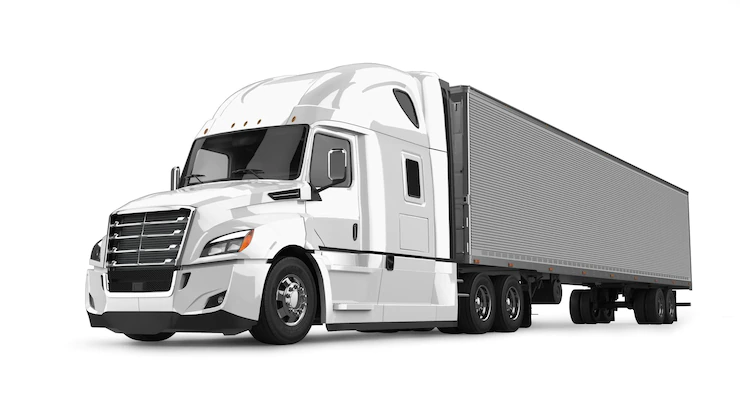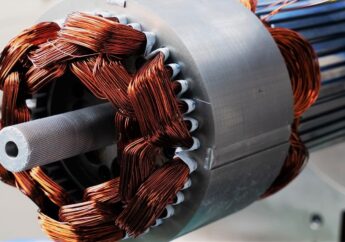Why Truck Overheating Occurs — Some Common Reasons You Must Know?
by Arnab Dey Automotive 20 July 2022

Although modern trucks are well-designed and robust enough to handle even the hot weather, they sometimes overheat even during normal weather.
One of the most common culprits of engine overheating is the failed cooling system. A damaged or clogged cooling system prevents the heat from escaping the engine compartment.
From a cooling system leak, faulty radiator fan, broken water pump, to clogged coolant hose — there are numerous causes for cooling system failure. But there are several other common causes — like a clogged radiator, slipping accessory belt, and more — of engine overheating.
Scroll down to discover all the reasons for truck overheating. You will also find some tips to deal with engine overheating. But let’s first learn how you can identify overheating and what should be your immediate response to the situation.
Truck Overheating Symptoms:
- Steam coming from under the truck hood.
- The temperature gauge displays “H” or the red symbol.
- Strange smell: a sweet smell means coolant escaping from the cooling system. Or the general burning smell.
- Ticking noise in the engine indicates that engine oil is not lubricating the moving parts.
Reduced engine performance: if you feel a sudden lack of engine power, look for the above symptoms.
What Should I Do When the Truck Engine Overheats?

If you are driving and encounter any of the above-mentioned scenarios,
Follow these precautions:
1. Pull Over and Come to Complete Stop
The first thing to do is bring the truck to immediate rest. And ensure to park the truck in the shade. Continuing to drive when the engine overheats may cause permanent damage.
Equally important to note, keeping the truck engine running when the truck is at rest will worsen the problem.
2. Turn Off A/C and Turn on the Heat
Another immediate response should be turning off the air conditioning in the truck. Plus, turning on the heat. Turning on the heat will suck the additional heat from the engine.
3. Open the Windows and the Truck Hood
Make sure to open all the windows as well as the truck hood. This will allow the smoke and heat to escape quickly.
4. Call a Local Truck Repair Service
Simply, google for local truck repair + the place. For instance, if you are in Long Island, search for truck repair Long Island, and you will find contact information for local repair services.
What Not To Do When The Truck Overheats?
Here are some things to avoid when the truck overheats:
- Do not open the truck hood immediately.
- Do not drive the truck for at least 30 minutes. And not at all, if you can get in touch with a local truck repair service.
- Do not let the issue linger. Yes, engine overheating is one of those damages that will not resolve on its own. So, even if you managed to cool the engine for some time. Ensure to take assistance as soon as possible.
Above all, do not panic. Engine overheating is common.
What Causes A Truck To Overheat?

Here are the top causes that lead to truck overheating:
1. Not Enough Coolant
Most truck owners avoid adding coolant to the coolant system. Or they do not add the coolant as per the recommended measure. Understand that the coolant system cannot operate alone with water — or just coolant for that matter.
So, ensure to check the recommended coolant-to-water mixture and use the proper mixture.
2. Coolant Leak
Another common reason for truck overheating is coolant leaks. If you find some oil in the parking area, make sure to check where it came from.
Needless to say, regardless of the leak — coolant or not — visit a nearby truck repair service and get it checked.
3. Water Pump is Broken
The water pump is what keeps the liquid circulating in the coolant system. A faulty or damaged water pump has to be replaced immediately.
4. Not Enough Oil
Engine oil, brake oil, or just about any lubricant — the deficiency causes friction between the moving parts, as the oil couldn’t lubricate the moving parts for smooth function.
So, ensure to use all the oil in the correct proportion and replace it every now and then.
5. Clogged Radiator
Clogged radiators cut down the circulation of liquid; in turn, the system cannot cool efficiently. You will have to remove the radiator — or visit a mechanic shop — and check the radiator. If necessary, you will have to replace the radiator.
At the same time, sometimes the radiator fans do not work. This too prevents the system from getting cool.
6. Damaged and Slipping Accessory Belts
Belts and hoses in the engine area regulate the flow of the coolant system. Any problems with the belts and hoses will cause obstruction and prevent the cooling system from getting cool.
Make sure to review the condition of belts and hoses next time you visit the truck repair service.
7. Failed Thermostat
The thermostat plays a significant role in regulating the cooling system. This is a common cause of truck engine overheating and occurs because the valves get stuck in a closed position.
You can easily notice the failed thermostat via the temperature gauge.
8. Malfunctioning Ignition System
There are instances where spark plugs fire the fuel or air mixture after the piston moves back from the top.
Yes, this does not overheat the engine to a great degree. But combined with other problems mentioned above, late timing can bring the truck engine temperature to a critical point.
The Bottom Line
Truck overheating can easily be prevented by regular and routine maintenance.
No matter what, you should replace the coolant periodically. Plus, ensure to use the correct water-to-coolant mixture as recommended by the manufacturer.
Besides these, you should also look for unusual leaks from the engine area. If you encounter any leaks or a strange smell coming from the engine area, visit a truck repair service immediately. Additionally, ensure not to overload the truck.
Understand that overloading increases the chances of accidents but also is heavy on the engine. Your engine will have to work harder to pull the extra weight. You can find the suggested weight limits in the truck’s manual.
Read Also:







































































































